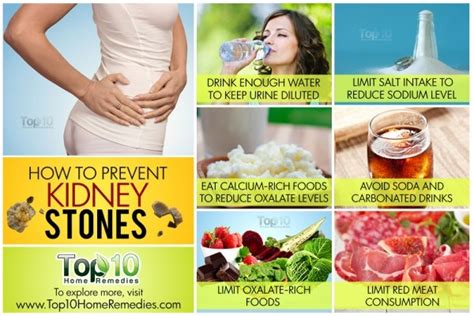How to Stop Kidney Stones: Prevention and Management Strategies
Kidney stones are a painful and common problem, but you can take steps to prevent them and manage existing ones. This comprehensive guide explores effective strategies for stopping kidney stones, focusing on lifestyle changes, medical treatments, and preventative measures.
Understanding Kidney Stones
Before diving into solutions, it's crucial to understand what causes kidney stones. Kidney stones are hard, crystalline minerals that form in the kidneys. Several factors contribute to their formation, including:
- Dehydration: Insufficient fluid intake is a major risk factor. Drink plenty of water!
- Diet: A diet high in sodium, animal protein, and oxalate-rich foods (like spinach and rhubarb) can increase your risk.
- Family History: A genetic predisposition significantly increases your chances of developing kidney stones.
- Certain Medical Conditions: Conditions like hyperparathyroidism and gout can also contribute to stone formation.
Lifestyle Changes to Prevent Kidney Stones
Many lifestyle modifications can significantly reduce your risk of developing kidney stones or experiencing recurrent episodes. These changes are often the first line of defense:
1. Hydration is Key
Drink plenty of fluids, especially water. Aim for at least eight glasses a day, or more depending on your activity level and climate. The increased fluid intake helps dilute urine, making it harder for crystals to form and stick together.
2. Dietary Adjustments
- Reduce Sodium Intake: Limit processed foods, fast food, and excessive salt in your cooking.
- Moderate Animal Protein: Consume animal protein in moderation. High protein intake increases uric acid levels, a potential contributor to stone formation.
- Limit Oxalate-Rich Foods: While not needing complete elimination, reducing your intake of oxalate-rich foods like spinach, rhubarb, and chocolate can be beneficial for some individuals. However, consult a doctor or registered dietitian for personalized advice, as oxalates are also vital for some bodily functions.
- Increase Citrate Intake: Citrate, found in lemons and limes, helps prevent stone formation. Adding a squeeze of lemon to your water can be a helpful addition to your hydration strategy.
3. Maintain a Healthy Weight
Obesity is linked to an increased risk of kidney stones. Losing weight through a balanced diet and regular exercise can contribute to better overall health and reduced stone risk.
Medical Interventions for Kidney Stones
For those already suffering from kidney stones, or at high risk, medical intervention may be necessary:
1. Medication
Your doctor might prescribe medication to help prevent further stone formation. These medications can help to manage underlying conditions or alter urine composition.
2. Shockwave Lithotripsy
This non-invasive procedure uses shock waves to break up kidney stones into smaller pieces, allowing them to pass more easily.
3. Ureteroscopy
A thin, flexible tube with a camera is inserted into the ureter to remove stones directly.
4. Percutaneous Nephrolithotomy (PCNL)
This minimally invasive surgery involves making a small incision in the back to remove larger stones.
When to See a Doctor
If you experience severe pain in your flank or lower abdomen, nausea, vomiting, or bloody urine, seek immediate medical attention. These could be signs of a kidney stone requiring medical intervention. Regular checkups and open communication with your doctor are crucial for managing kidney stones effectively.
Conclusion
Preventing and managing kidney stones involves a multifaceted approach. By adopting a healthy lifestyle, making dietary changes, and seeking medical advice when needed, you can significantly reduce your risk and improve your overall well-being. Remember, prevention is key, and early intervention is crucial for managing this painful condition. Consult your physician for a personalized plan based on your specific circumstances and medical history.
